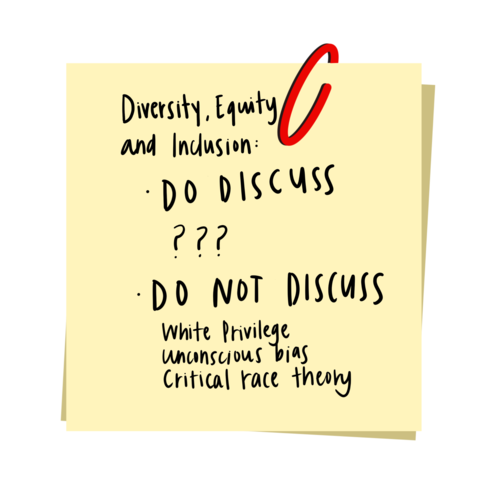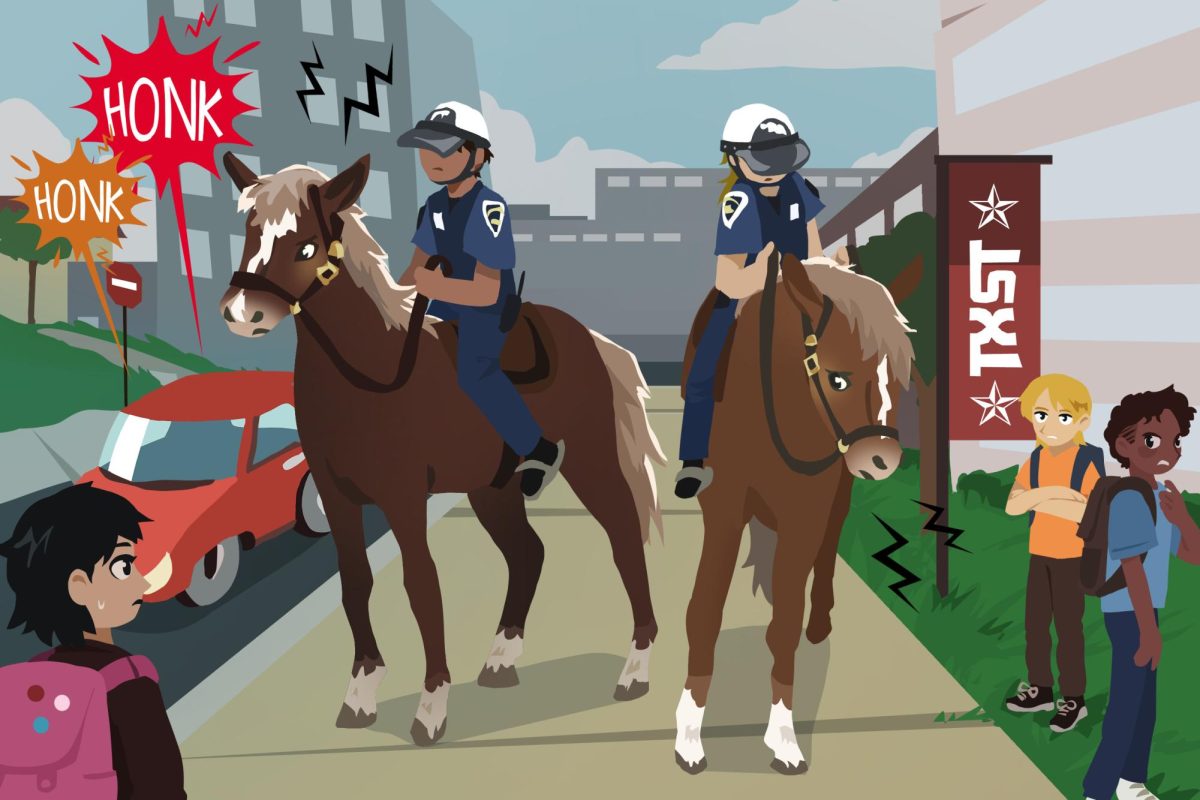President Donald Trump’s September Executive Order has led to widespread cancellations of and pauses on diversity, equity and inclusion (DEI) training sessions at universities across the nation, many of whom receive federal funding—including Texas State.
Not only is this short-sighted, but it demonstrates the very need for conversations about DEI that center the voices of marginalized people and allow those with the privilege to acknowledge privilege—even when it is so uncomfortable that it merits writing an executive order.
The executive order on Combating Race and Sex Stereotyping applies to federal workforces, contractors, uniformed services and institutions that use federal grant funds for DEI training. It decried some diversity training given in federally-funded programs as “anti-American” and “destructive,” describing it as a “malign ideology” “infect[ing] core institutions of our country.”
What exactly was so offensive to the President? Acknowledgment of white privilege and the historical centering of white people in the American experience, arguments against a “color-blind” approach to race relations and statements that facing one’s privilege could result in “feelings of guilt, sadness, confusion, defensiveness or fear.”
Universities face a difficult task: Figure out what conversations are Trump-approved—as they should be to merit federal funding—and which are offensive.
Sometimes, it is easy. The executive order specifically calls out ”white privilege,” “unconscious bias” and “critical race theory” as no-go phrases. But other topics may or may not contribute to the “divisiveness” the executive order warns about, depending on one’s perspective.
Critical race theory, for example, has taken center stage as the new scary catchphrase of the American political right, despite pundits and politicians alike not understanding what it means. It is a framework—an academic approach to researching race relations. This hardly qualifies as “Marxist doctrine”—it merely provides a lens through which systemic racism may be examined.
Despite the labyrinthine interpretations of how best to enforce this executive order without simultaneously infringing on anyone’s First Amendment rights to free speech, it is clear that universities, including Texas State, need to make space for these conversations, regardless of what framework is used.
A 2014 study in the effects of unconscious bias on university hiring showed a clear barrier in something as simple as a graduate school applicant’s name and how ethnic it appeared. University faculty tendered significantly more responses to potential doctorate students with Caucasian male names than those with names belonging to any other group (e.g., female, Chinese, Indian, Latinx), despite the body of the email being identical.
This bias could easily be addressed in a training session. However, Trump’s executive order has placed a barrier before that remedy.
Whether conscious or unconscious, such bias has grabbed headlines at Texas State with former basketball coach Danny Kaspar’s resignation following his alleged use of racist language with players. Students have protested various alleged inequalities perpetuated by the university police, faculty and athletic and extracurricular groups.
All this shows Texas State’s need—especially as a Hispanic Serving Institution—for more opportunities for students, faculty and staff alike to learn about some of the U.S.’ most pressing race relations issues, no matter the framework.
It is not that reactionary voices have suddenly brought the concepts of white privilege and unconscious bias to light. In fact, a featured speaker in Texas State’s 2008 Common Experience program gave a lecture on anti-racism and white privilege. It is that new reactionary voices have taken issue with how these concepts are presented, thereby proving that we need to understand them now more than ever.
If a white person is upset or uncomfortable with acknowledging their white privilege, they should imagine how it feels for those who do not have such privilege. Marginalized people have been engaging in these uncomfortable conversations since time immemorial. It would benefit us all to take part and learn from them.
-Toni Mac Crossan is a biology graduate student
The University Star welcomes Letters to the Editor from its readers. All submissions are reviewed and considered by the Editor-in-Chief and Opinion Editor for publication. Not all letters are guaranteed for publication.
Opinion: Diversity training is more than a political issue
October 19, 2020

DEI Do’s/ Don’t’s
Donate to The University Star
Your donation will support the student journalists of Texas State University. Your contribution will allow us to purchase equipment and cover our annual website hosting costs.
























